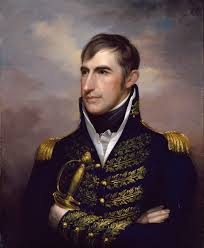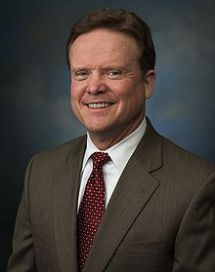*Every first Tuesday every other month, the President’s Project will preview a different Presidential background in anticipation of the 2016 Presidential Election. Backgrounds do not overlap though surely these distinguished men’s did. It is with great care that a determination is made on what exactly the President was known for at the time of his election.*
Generals in the White House:
Overview: From the beginning Americans have sung the twin praises of democracy and civilian rule. They beat the drum for the common man and looked stateside for their heroes. Well, that did not stop the voting public from looking to military brass for their chief magistrate.
1. George Washington (1789-1797): Elected twice unanimously by the American electorate, the first direction the nation looked for leadership was General George Washington. Fresh off of the thrilling victories of the Revolutionary War, Washington swept his incredible popularity into the President’s chair. His role as a general was present from the start. He had a small circle of advisers, but also showed incredible independence and leadership as the first President. His sense of clarity and purpose closely paralleled his military career of old. In fact, his electoral triumph was even unprecedented. It was his only national election. Though many of Washington’s presidential actions were considered sacred precedents, it would take another great war with Great Britain for a general to again lead the nation.
7. Andrew Jackson (1829-1837): If Andrew Jackson were submitting resumes to the Oval Office today, “General” would not be most recent experience. This of course is does not tell how Jackson became an endearing ideal. The Junior Senator of Tennessee from 1823-1825 would never be mistaken for General Andrew Jackson. From his advisor-heavy “Kitchen Cabinet” in the White House, to his ruthless fights to oblivion with enemies, Jackson never show presidential power as anything other than war. He believed in his cause with soldierly determination and imposed his will onto an entire era. This was true whether his foe was real in the case of Great Britain or imagined, (he once said of the US Bank, “The Bank is trying to kill me, but I will kill It!)” It is clear that no early President was more instrumental in establishing a vision of a strong executive. For him, politicians were yet another army to impose his will and his vision.
9. William Henry Harrison (1841): Though a full generation passed between Washington and Jackson, America waited only four years before turning again to military greatness. From the economic malaise of the “Martin Van Ruin” administration, William Henry Harrison’s mostly light 1840 campaign was a boon. Most famous pre-presidency for being “Mr. Jefferson’s Hammer” on the western frontier, General Harrison was second only to Jackson in the early 19th century glamorization of American military. Like Jackson, Harrison used military retirement to at least nominally engage in politics, serving barely a year as the Minister to Columbia for John Quincy Adams from 1828 to 1829. History never saw if Harrison would continue his two General predecessor’s as strong leaders. The ninth president died April 4th, 1841, barely a month after taking office.
12. Zachary Taylor (1849-1850): The death of one general set into motion a chain of events that led to another just eight years later. Following a disastrous John Tyler presidency and President Polk’s bloody Mexican-American war, the nation looked ironically to a General to return peace to the nation. It was in that bloody Mexican-American war, that General Zachary Taylor rose to palpable popularity. With sweeping triumph America was again victorious with new heroic generals splashed across the nation’s headlines. Unlike Jackson and Harrison, General Taylor cashed in immediately, running just months after the war concluded. His victory was a decisive one, becoming the first Whig to win a national election since Harrison. “Old Rough and Ready” Taylor proved to not be as forcible as expected. Following the creed of his legislature-as-the-power Whig party, Taylor relished in a diminutive chief executive following the whims of Congress. In true Whig fashion, few of the nation’s memories of the Taylor adminstration are of his executive prowess. What remained was far from the image of heroic generals of yesteryear. He holds the dubious honor of being the last slave-holding President and he would die July 9th 1850 just 16 months after taking office. He never got around to flexing Presidential muscle.
18. Ulysses S. Grant (1869-1877): Joining the army at age 21, Sam Grant was a military man until his election to the White House in 1868. Like his predecessors, it took a dynamic war to bring him to political stardom. Elected after his sensational triumph as the head of the Union Army in the failed Southern Independence Movement of 1861-1865, General Grant essentially could have picked his profession due to his overwhelming popularity. Settling on being the Republican Party’s nominee for president in 1868, President Grant joined the long line of American battlefield victory capped by civilian rule. History has not been kind to Grant who was an aging General by the time he left office. Far from projecting a willful and ethical Cabinet to the masses , Grant’s eight years in office were littered with corruption and scandal. Though Grant has largely remained outside of suspicion in these scandal-ridden times, his Presidency is known more for his failure than its accomplishments. Though his stock is rising due mostly to a progressive and forward thinking view on Civil Rights and Indian Peace, Grant’s troops were indicative of widespread chaos during his time in office. The same man who marshaled forces during the nation’s most perilous time could not translate it into a presidency.
34. Dwight D. Eisenhower (1953-1961): The Civil War gave Americans many civilian elected representatives. This followed a long line of generals from the Revolution to the War of 1812 to the Mexican American War. However, once General Grant exited the stage, Americans declined the Spanish-American War and WWI generals for the highest office in the land. It wouldn’t be until World War II before finally looked again to a general to lead the nation. By the time of General Eisenhower’s election in 1952 ,it had been 80 years since a general was elected president. To put that in perspective, we are still 20+ years from equaling that drought. It was quite the drought buster. Ike the General led America to worldwide triumph as Supreme Allied Commander during the war and as a force of will after it. By his inauguration in 1953, the America Eisenhower inherited was much different than his military predecessors that rose to his level. As a battle tested world power, the winner of mid-20th Century peace now guided 1950s America through the end of the Korean War and the ever-terrifying Cold War. He created a forceful foreign policy and oversaw an arms race. His military mind even went to work stateside. Anyone driving on one of the 20 interstate highways may have noticed. The Eisenhower Highway System was a direct result of his military career. While driving the Autobahn after the war, Eisenhower brought the idea home. Finally, it was the Russian launch of Sputnik that immediately was seen by Ike as a military aim and not just one of science. America has not looked to a general since.
Could it happen in 2016?: However, when Eisenhower left office, his popularity and strength ended up being the end and not the beginning of an era. Barring an unforseen challenger from either party, 2016 will mark 60 years since America has looked to military brass as President. In fact, George H. W. Bush is the last military veteran to be elected, a drought that will reach 28 years by 2016. So what man or woman is showing signs of breaking the drought? Well, none. So far, no military General has thrown his or her hat in the ring which makes it highly unlikely that ’16 will see a return of military might in the White House.
Recent polls have shown that military is not exactly a bulletproof background in ’16. There are 18 candidates in the latest Iowa straw poll. Only Democrat Jim Webb (2.5% of latest polls) and Republican Rick Perry (4.8% of latest polls) have seen any military action and nowhere near the rank of general. Both left the military as Captains with Webb discharged by the Marines in 1972 and Perry discharged by the Air Force in 1977.












